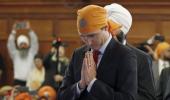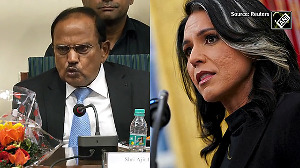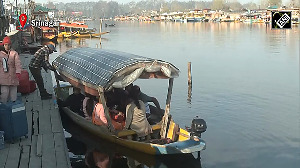India on Friday rejected Canada's attempt to 'portray' the withdrawal of 41 of Canadian diplomats from the country as a violation of international norms, and asserted that ensuring two-way diplomatic parity is fully consistent with the provisions of the Vienna Convention on diplomatic relations.

India's comments came after Canadian Foreign Minister Melanie Joly, announcing the return of the diplomats from India, described New Delhi's action 'contrary to international law' and in violation of the Vienna convention on diplomatic relations.
The Ministry of External Affairs (MEA) said the state bilateral relations, the much higher number of Canadian diplomats in India, and their continued interference in India's internal affairs warranted a parity in mutual diplomatic presence in New Delhi and Ottawa.
India's decision to seek parity was conveyed to Canada around one month ago and the date for implementing it was October 10 but it was extended till October 20 as modalities to implement the parity were being worked out in consultation with the Canadian side, official sources said.
They said parity in the diplomatic presence was sought for Indian high commission in Ottawa and Canadian high commission in New Delhi.
"There is no impact on Canadian diplomatic strength in their consulates in Bengaluru, Mumbai and Chandigarh. The Canadian decision to cease operations of their three consulates in India, is unilateral, and not related to the implementation of parity," said a source.
In a statement, the Ministry of External Affairs (MEA) said: "We reject any attempt to portray the implementation of parity as a violation of international norms."
Last month, India asked Canada to withdraw 41 of its diplomats from the country after a diplomatic row erupted between the two sides following Canadian Prime Minister Justin Trudeau's allegation linking Indian agents to the killing of Khalistani separatist leader Hardeep Singh Nijjar in June. India strongly rejected the charges.
"We have seen the statement by the Government of Canada on October 19 regarding Canadian diplomatic presence in India," the MEA said.
"The state of our bilateral relations, the much higher number of Canadian diplomats in India, and their continued interference in our internal affairs warrant a parity in mutual diplomatic presence in New Delhi and Ottawa," it said.
The MEA said it has been engaged with the Canadian side on the issue over the last month in order to work out the details and modalities to ensure implementation of parity in diplomatic presence.
"Our actions in implementing this parity are fully consistent with Article 11.1 of the Vienna Convention on Diplomatic Relations," the MEA said in a statement.
It also mentioned Article 11.1 of the Vienna convention.
The provision says: "In the absence of specific agreement as to the size of the mission, the receiving State may require that the size of a mission be kept within limits considered by it to be reasonable and normal, having regard to circumstances and conditions in the receiving State and to the needs of the particular mission."
The sources cited above said India's action is in sync with the provisions of Article 11.1 of the Vienna Convention on diplomatic relations that provides the receiving state the right to limit the size of a diplomatic mission.
They said Article 11.1 has been used in the past by other countries on many occasions.
The sources said Canada's domestic legislation itself provides for comparable treatment of foreign diplomats in Canada to what its own diplomats get in a foreign country, as well as withdrawal of any of their diplomatic privileges and immunities.
"Attempts by Canada to portray this as an 'arbitrary' and 'overnight' decision is factually inaccurate," said a source.
In her comments on Thursday, Joly said in its "unreasonable" request for diplomatic parity, India would only allow 21 diplomats and their families to maintain their diplomatic status.
"This means 41 Canadian diplomats and their 42 dependents were in danger of having immunity stripped on an arbitrary date, and this would put their personal safety at risk," she said at a news conference in Ottawa.
"The safety of Canadians and of our diplomats is always my top concern. Given the implications of India's actions on the safety of our diplomats, we have facilitated their safe departure from India," Joly said.
"This means that our diplomats and their families have now left."
Joly also described India's action as "contrary to international law" and in violation of the Vienna Convention on diplomatic relations.
"There is a fundamental principle of diplomacy, and this is a two-way street. It only works if every country abides by the rules," she said.
"A unilateral revocation of diplomatic privileges and immunities is contrary to international law," Joly said.
"Threatening to do so is unreasonable and escalatory. If we allow the norm of diplomatic immunity to be broken, no diplomats anywhere ...would be safe."
"So for this reason, we will not reciprocate," she added.
The sources said India's decision to seek parity was conveyed to Canada around one month ago, with a target implementation date of October 10.
"This date was extended till October 20 as details and modalities of implementation, including the list of Canadian diplomats who would continue to be accorded diplomatic immunities and privileges were being worked out in consultation with the Canadian side," said a source.











 © 2025
© 2025